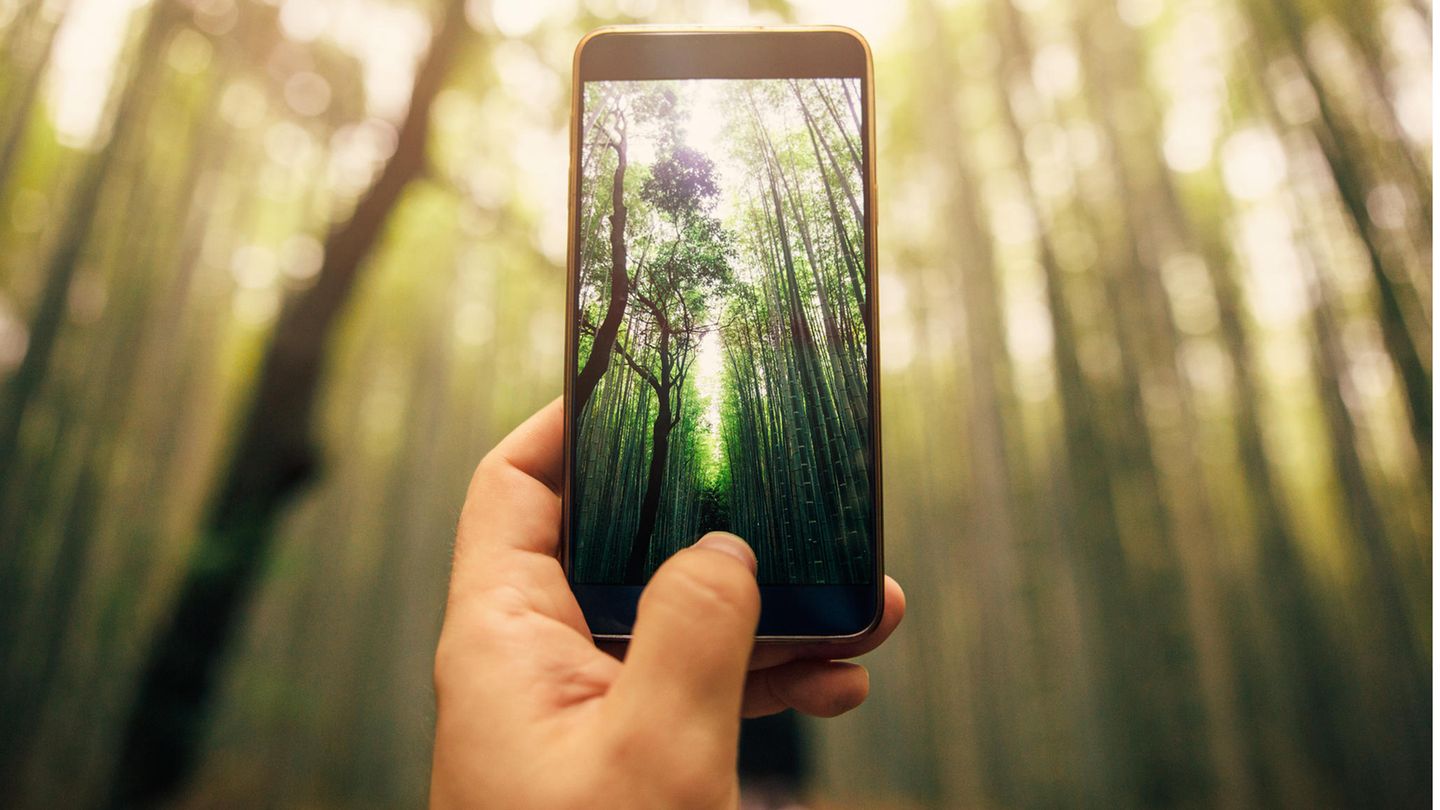Fairly produced smartphones are still a rarity. The reason is sad. Most consumers are familiar with the Fairphone. But which alternatives take on the sustainably manufactured top dog?
Living a sustainable life is easier said than done. In some areas of our everyday life, consumers have little or no opportunity to choose fairly produced and ecological products. This is particularly the case with technology such as smartphones and laptops. In stores, consumers usually see the finished high-gloss product inside. But what is in it and how it is manufactured is as complex as the devices themselves in the globalized economy with its worldwide supply chains and production facilities.
Raw materials, smartphones and child labor
Around 60 different raw materials lie dormant in a smartphone, including iron, silicon, gold, magnesium, copper, nickel, tin, palladium and rare sands and earths. Some of them are won under inhuman conditions and always when they come from the poorest regions of the world – for example the Congo. In the mines there, children dig for cobalt, among other things, as revealed in a report from 2016.
The metal is indispensable for batteries in cell phones and electric cars. How and where the raw materials are collected for further processing is also a worldwide spectacle. The raw materials for chips usually end up in Indian factories and are processed there. The end product – i.e. the finished chip – then travels to China and Taiwan, where it can be mutated into a smartphone with other components from all over the world as cheaply as possible. That in turn lands in containers by freighter in Europe, America, Australia and Oceania and all other corners of the world.
Profit versus humanity
No matter where on earth mine operators, suppliers and factory owners are, they are all united by the will of the most profitable business possible. And in corrupt states or dictatorships this business is mostly based on the exploitation of land and people. Unfortunately, no manufacturer can choose how the raw materials are distributed, which is why everyone more or less depends on this exploitation.
Most manufacturers also shy away from the costs and efforts of making raw material extraction and production chains more employee-friendly and environmentally friendly. If so, then the change only comes about as a result of external pressure – i.e. the largest customers. However, the effort for manufacturers seems to be too great to dig through the global supply and production network and to exert pressure on production facilities and raw material extraction. In addition, there is the fear of falling behind the competition through an act of humanity. After all, one thing counts above all at Apple, Samsung and Co.: profit. And, as is well known, this does not increase through fairer and more sustainable products, but rather through cheaply produced and dearly sold products.
Bad image, better working conditions
Unless the image suffers: A few years ago Apple came under fire because the Californian company commissioned the Taiwanese manufacturer Foxconn to manufacture its iPhones. Foxconn thought little of decent work, which is why the company hit the headlines with a never-ending series of employee suicides.
The scandal also affected the image of the US tech giant, which subsequently put pressure on Foxconn to at least improve working conditions. Who would have thought it: Foxconn only improved its working conditions under pressure from its largest customer. The basic dilemma, however, remains: Because of the different raw materials and global production chains, it is still (almost) impossible to buy a fair smartphone.
The Fairphone
The Dutch company Fairphone, based in Amsterdam, has been fighting this problem since 2013. With the first Fairphone, the founders made sure that the metals used did not come from war zones. The constant development towards more powerful, but also more sustainable smartphones followed. The highlight of the following generations was a modular system that allows individual components such as cameras or batteries to be exchanged.
Consumers do not have to buy a new smartphone every four years, but only replace the components that need an update. That will come towards the end of 2021, beginning of 2022 on the market that can transmit in the 5G network, runs with Android 11 and has Fairtrade Gold certification. A label that no other smartphone can adorn itself with. Another plus point: For every Fairphone sold, the company recycles the same amount of electronic waste.
Now Fairphone 4 at Galaxus pre-order
- Processor: Qualcomm Snapdragon 750G
- Random access memory: 6 GB
- Storage: 128 GB
- selfie camera: 25 MP
- Rear camera: Dual-Camera 48 MP
- Display: 6.3 inch FHD + LCD
Die Fairphone-Alternativen
Driven by the success of the Fairphone, other manufacturers are trying to follow suit. However, the competitors share certain characteristics of the Fairphone among themselves. There is still no equal competitor for the Fairphone.
Gigaset: Production in Germany
After all, in Germany, at least in parts, there are composite cell phones from the manufacturer Gigaset. Unfortunately, they are not modular and their production still requires suppliers from other countries with poorer working conditions. Production in Germany is definitely a first step in the right direction. Gigaset also ensures that its packaging is made from up to 90 percent recycled material. Plus point for the environment: Since the smartphones are manufactured in Germany, there are no long delivery routes. This is the manufacturer’s latest smartphone – Its successor GS5 is already in the starting blocks.
- Processor: Mediatek Helio P70
- Random access memory: 4 GB
- Storage: 64 GB
- selfie camera: 13 MP
- Rear camera: Triple-Kamera 16 MP, 5 MP, 2 MP
- Display: 6.3 inch FHD + LCD
Mara Z1: For better working conditions in Africa
Mara is following a similar path to Gigaset with his . However, the manufacturer does not produce in Germany but in Africa. And there is a good reason for that: The aim of the Mara Foundation is to improve local working conditions. Unfortunately, the manufacturer is silent about the working conditions of the built-in chips as well as about the origin of the raw materials.
- Processor: Qualcomm MSM8940
- Random access memory: 4 GB
- Storage: 64 GB
- selfie camera: 13 MP
- Rear camera: Triple-Kamera 16 MP, 8 MP, 2 MP
- Display: 6.5 inch HD + LCD
Teracube: the recycled smartphone
On the other hand, it should be particularly environmentally friendly be. It consists of 25 percent recycled material and offers a four-year manufacturer’s guarantee as well as a free repair service. For comparison: The Fairphone 4 comes with a five-year guarantee and the repairs can be carried out by experienced hobbyists themselves thanks to the modular system. After all: for every Teracube sold, the company plants a tree according to its own information. Teracube is also moving in the right direction, but is not yet close to a Fairphone.
Now Teracube to buy
- Processor: MediaTek Helio A25
- Random access memory: 4 GB
- Storage: 64 GB
- selfie camera: 8 MP
- Rear camera: Dual-Kamera 13 MP, 8MP
- Display: 6.1 inch HD + LCD
Shiftphone: Modular smartphone from Germany
The Shiftphone is a similarly modular smartphone as the Fairphone. In addition to their longevity thanks to the modular system, Shift products shine because the company is committed to donating five percent of its income to social and sustainability projects. Why haven’t you heard from the devices? Well, only 0.1 percent of the money goes into marketing and advertising. As if that weren’t enough, the founders also forego private profits from their company. By the way: In 2021 the German Sustainability Award went to Shift. This means that the Berlin startup is currently closest to the Fairphone. The company’s flagship is that .
Now Shift6mq at Idealo to buy
- Processor: Qualcomm Snapdragon 845
- Random access memory: 8 GB
- Storage: 128 GB
- selfie camera: 13 MP front camera
- Rear camera: Dual-Kamera 24 MP, 16 MP
- Display: 6 inch FullHD AMOLED
Fairphone alternative: used is new!
So far, so manageable. There is no place for Apple, Samsung, Google and Xiaomi in this list. Everyone really cares too little about the production conditions and the origin of the raw materials for their smartphones. If anything, the big manufacturers take action when they see their business endangered by a bad image. Anyone who still wants to remain loyal to their beloved brands, for example because they use cloud or other software services from the manufacturer, should look out for so-called refurbished products.
These are returns or exhibits that usually have minor visual defects, but function perfectly. Before the devices go on sale, they are checked for functionality by experts. There is no manufacturer guarantee, but of course the statutory guarantee of one year applies. Plus point for the used ones: The price is below the new value and there are no costs for new raw materials and transport routes.
Ecosia: the green search engine
Incidentally, it is not just the smartphone that decides how ecological it is, but also how it is used. Streaming services such as Netflix and Spotify or social networks such as Instagram and Twitter and, last but not least, Google search are energy-hungry and climate-damaging services. But they don’t have to be, as the search engine proves: Ecosia donates 80 percent of the surplus to non-profit nature conservation organizations.
Consumers need not fear poor search results, because Ecosia receives them from Bing, Microsoft’s search engine. However, the eco search engine has a problem and that is a market share of only 0.1 percent. Why is that? Well, theoretically you can freely set a standard search engine in your browser – for example Ecosia (ecological) or (privacy) – and enter a search directly from the link line. However, very few people do that. To make matters worse, Apple, Firefox, Opera & Co. auction to the highest bidder which search engine is preset as “standard” in their browser.
Because Google is the biggest fish in the pond and has the most money, the company regularly buys first place in the list, thus keeping the competition small and securing a market share of more than 90 percent. Quite a few critics therefore speak of a monopoly position for Google – at least in the western world. Because the company only has serious competition in two countries around the world. They are Russia and China because the search engines Yandex (Russia) and Baidu (China) are more popular there – or Google is banned.
David William is a talented author who has made a name for himself in the world of writing. He is a professional author who writes on a wide range of topics, from general interest to opinion news. David is currently working as a writer at 24 hours worlds where he brings his unique perspective and in-depth research to his articles, making them both informative and engaging.




